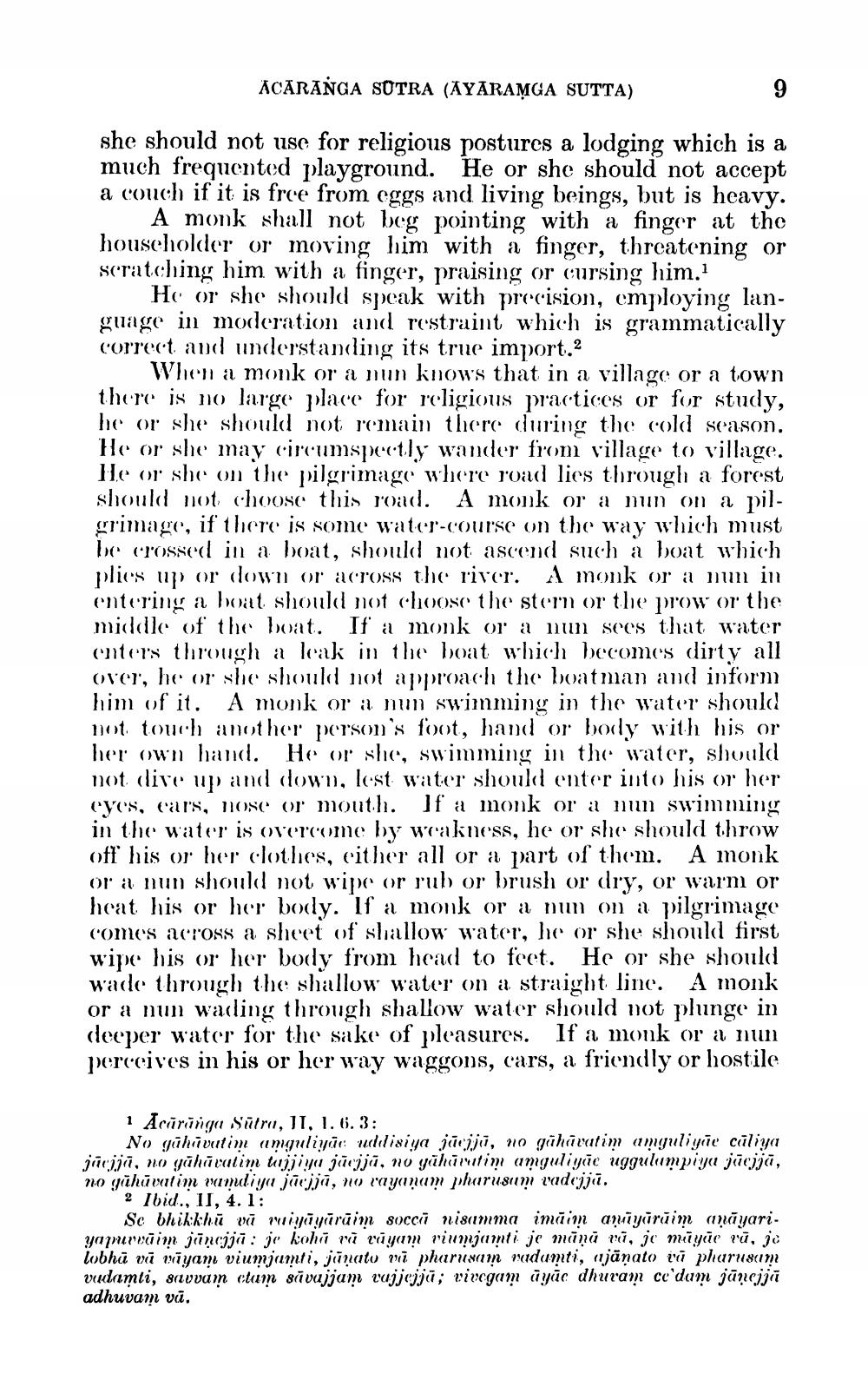________________
ACARANGA SUTRA (AYARAMGA SUTTA)
she should not use for religious postures a lodging which is a much frequented playground. He or she should not accept a couch if it is free from eggs and living beings, but is heavy.
A monk shall not beg pointing with a finger at the householder or moving him with a finger, threatening or scratching him with a finger, praising or cursing him.
He or she should speak with precision, employing language in moderation and restraint which is grammatically correct and understanding its true import.2
When a monk or a mun knows that in a village or a town there is no large place for religious practices or for study, he or she should not remain there during the cold season. He or she may circumspectly wander from village to village. He or she on the pilgrimage where road lies through a forest should not choose this road. A monk or a mun on a pilgrimage, if there is some water-course on the way which must be crossed in a boat, should not ascend such a boat which plies up or down or across the river. A monk or a nun in entering a boat should not choose the storm or the prow or the middle of the boat. If a monk or a nu sees that water anters through a leak in the boat which becomes dirty all over, he or she should not approach the boatman and inform him of it. A monk or id nun swimming in the water should not touch another person's foot, hand or body with his or her own hand. He or she, swimming in the water, should mot dive up and down, lest water should enter into his or her eyes, cars, nose or mouth. If a monk or a mun swimming in the water is overcome by weakness, he or she should throw off his or her clothes, either all or a part of them. A monk or a mun should not wipe or rub or brush or dry, or warm or heat his or her body. If a monk or a mm on a pilgrimage comes across a sheet of shallow water, he or she should first wipe his or her body from head to feet. He or she should wade through the shallow water on a straight line. A monk or a nun wading through shallow water should not plunge in deeper water for the sake of pleasures. If a monk or a nun perceives in his or her way waggons, cars, a friendly or hostile
1 Acūrüngu Sūtru, II, 1.6.3:
No gūhiivutim amguliyae ulisiya jūciji, no gühavatim amguliyne cūliya jaciji, no yähävalim tujiyu jūcijā, no yähintim amguliyże uggulumpiya jūcijā, no qühüvatim rmdiyu jūcijā, no vayanam pharustım vadcija.
2 Ibid., II, 4.1:
Se bhikkhu vui riyayürāim socci nisumma imūin aniiyürūim anāyari. yapurvaim jincjji: je kohi ri eriyam riumjamti je mūņi vui, je minyue rā, jo lobhū vi viyam viumjami, jānatu vi pharusam radumti, jänato evi pharusum vudamti, stvarn ctuin sivujjam vujjenju; vivegam uyūc dhuram cc'dam jānciji adhuvam vā.




